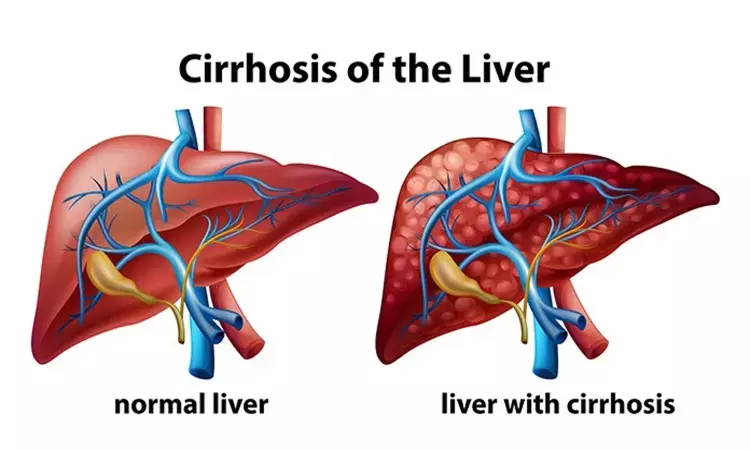- Home
- Medical news & Guidelines
- Anesthesiology
- Cardiology and CTVS
- Critical Care
- Dentistry
- Dermatology
- Diabetes and Endocrinology
- ENT
- Gastroenterology
- Medicine
- Nephrology
- Neurology
- Obstretics-Gynaecology
- Oncology
- Ophthalmology
- Orthopaedics
- Pediatrics-Neonatology
- Psychiatry
- Pulmonology
- Radiology
- Surgery
- Urology
- Laboratory Medicine
- Diet
- Nursing
- Paramedical
- Physiotherapy
- Health news
- Fact Check
- Bone Health Fact Check
- Brain Health Fact Check
- Cancer Related Fact Check
- Child Care Fact Check
- Dental and oral health fact check
- Diabetes and metabolic health fact check
- Diet and Nutrition Fact Check
- Eye and ENT Care Fact Check
- Fitness fact check
- Gut health fact check
- Heart health fact check
- Kidney health fact check
- Medical education fact check
- Men's health fact check
- Respiratory fact check
- Skin and hair care fact check
- Vaccine and Immunization fact check
- Women's health fact check
- AYUSH
- State News
- Andaman and Nicobar Islands
- Andhra Pradesh
- Arunachal Pradesh
- Assam
- Bihar
- Chandigarh
- Chattisgarh
- Dadra and Nagar Haveli
- Daman and Diu
- Delhi
- Goa
- Gujarat
- Haryana
- Himachal Pradesh
- Jammu & Kashmir
- Jharkhand
- Karnataka
- Kerala
- Ladakh
- Lakshadweep
- Madhya Pradesh
- Maharashtra
- Manipur
- Meghalaya
- Mizoram
- Nagaland
- Odisha
- Puducherry
- Punjab
- Rajasthan
- Sikkim
- Tamil Nadu
- Telangana
- Tripura
- Uttar Pradesh
- Uttrakhand
- West Bengal
- Medical Education
- Industry
Vitamin D may help protect spontaneous peritonitis in cirrhosis patients: Study

China: Vitamin D may protect from spontaneous peritonitis in cirrhosis patients, finds a recent study in Gastroenterology Review.
Portal hypertension, ascites, spontaneous peritonitis, and encephalopathy are the most common and serious complications of cirrhosis. Spontaneous peritonitis increases mortality in cirrhosis four times and has a poor prognosis. A previous study has reported vitamin D to be closely related to spontaneous peritonitis.
Vitamin D apart from classical effects on bone mineralisation, also has distinct immunological functions influencing cell proliferation and differentiation, immunomodulation, and the gut microbiome. In addition, another report indicated that the biologically active form of vitamin D, 1,25(OH)2D, may reduce inflammation. The anti-inflammatory effect of vitamin D may be beneficial for the prognosis of spontaneous peritonitis.
Against the above background, Zhongchen Zhang, Department of Gastroenterology, The First People's Hospital of Wenling, Taizhou, China, and colleagues aimed to conduct a meta-analysis to confirm whether there is a negative correlation between vitamin D and spontaneous peritonitis.
For the purpose, the researchers searchedfor articles published up to 1 October 2019 in PubMed, Medline, and Embase databases. According to the inclusion and exclusion criteria, relevant statistical data were extracted and analysed by STATA. It included articles that contained 1) Human-related clinical research and full-text article. 2) Cirrhosis with spontaneous peritonitis. 3) complete data for the calculation of vitamin D.
A total of 6 articles met the inclusion criteria.
Key findings of the study include:
- It was demonstrated that the average 25(OH)D level in spontaneous peritonitis patients was 2.36 less than that in control individuals (SMD = –2.36).
- It found that spontaneous peritonitis patients were 4.33 times more likely to be vitamin D deficient than controls (OR = 4.33).
- Sensitivity analysis showed that the meta-analysis results were stable and reliable.
"Vitamin D may be an importantly protective factor in spontaneous peritonitis," wrote the authors.
Reference:
The study titled, "Effect of vitamin D deficiency on spontaneous peritonitis in cirrhosis: a meta-analysis," is published in the journal Gastroenterology Review.
DOI: https://www.termedia.pl/Effect-of-vitamin-D-deficiency-on-spontaneous-peritonitis-in-cirrhosis-a-meta-analysis,41,42649,1,1.html
Dr Kamal Kant Kohli-MBBS, DTCD- a chest specialist with more than 30 years of practice and a flair for writing clinical articles, Dr Kamal Kant Kohli joined Medical Dialogues as a Chief Editor of Medical News. Besides writing articles, as an editor, he proofreads and verifies all the medical content published on Medical Dialogues including those coming from journals, studies,medical conferences,guidelines etc. Email: drkohli@medicaldialogues.in. Contact no. 011-43720751


